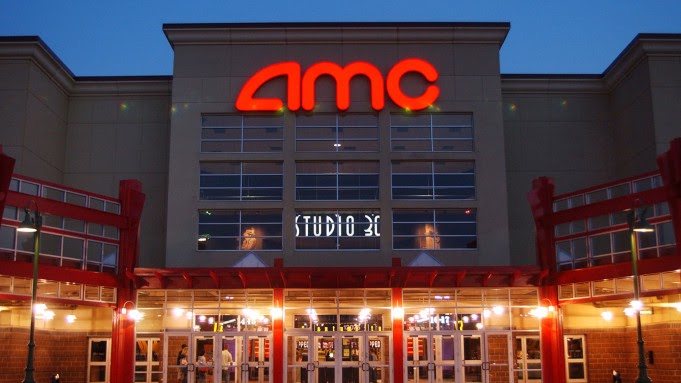No industry has been safe from the wrath of the COVID-19 pandemic, especially not the film industry. The global crisis has forced studios to reevaluate how they do business, especially in regards to tent-pole films. According to a recent report from Variety
, MGM had shopped around their latest James Bond film No Time To Die to streaming services such as Apple TV and Netflix. However, talks quickly petered out due to MGM’s bidding price of $600 million being an understandable turn-off for the streaming services. The failed shopping venture is what ultimately led the studio to move the film from this November to April 2021, which is an additional delay from its’ originally planned release of April 2020. While it may seem unprecedented to put a tentpole film from the James Bond franchise on a streaming service, we are living in unprecedented times.

Back in the spring when the pandemic initially spiraled out of control, many studios pushed their tentpole movies back from summer to next year in the hopes that things would be under control by then. Unfortunately, countries like England, Spain and Italy are facing drastic uprises of COVID-19 cases while the United States continues to shatter daily records in terms of infections and deaths. Dr. Anthony Fauci has recently stated that a COVID-19 vaccine is not likely to be out for mass distribution before the first few months of 2021, while also estimating early 2022 being the earliest when things can go fully back to normal. Such does not bode well for studios who pushed their big movies back to Spring and even Summer 2021, which will likely find the United States still in recovery mode. The responsible, steady distribution of a vaccine across the globe will prohibit theaters from being packed to full capacity throughout the first half of next year, which will stall the film industry from getting back to the record breaking $42.5 billion they made last year in global box office receipts.
There is nothing more that scares the living daylights out of studio executives more than the idea of their big tentpole movies failing to make a profit. They can claim all they want that they care about the “theatrical experience,” but all that really matters to them is protecting their investments to ensure as much profit for themselves as possible. Franchise comedy films like Coming 2 America and Borat 2 were sold to Amazon Prime for $125 million and $80 million because those were in the price range that Amazon was willing to pay up. Universal moved Trolls: World Tour to On-Demand for $20 and Disney moved Mulan to Disney Plus for $30 so both studios could test the waters of tentpoles being released in the Premium-On-Demand format. Neither film proved to be a financial success for their respective studios, affirming movie theaters as the ideal way for a franchise movie to make a profit. Despite theater chains being the necessary outlet for studios to make money, studios have dishearteningly offered them little financial support during this time of crisis.
In fact, studios have actually used the pandemic as a way to dump out low budget fare like Unhinged and The War With Grandpa into theaters over these last few months. Such is a calculated move in that studios can dispose of movies they had no faith in while also blaming the pandemic for the film not doing well at the box-office. The only effort made to give theaters some support came from Warner Bros. when they released the sci-fi blockbuster Tenet in theaters across the globe back in September. Such was done mainly to see if a massive tentpole film could be financially successful during our current global crisis. Unfortunately, Tenet was not the triumphant return for blockbusters that Warner Bros. or many other studios were hoping it would be. As a result of Tenet underperforming, Hollywood has waved the white flag on 2020 and continued to delay their big tentpole movies into next year.

In an interview with The Los Angeles Times, Tenet director Christopher Nolan discussed his concern regarding studio reactions to his film being a disappointment the box-office. In the interview, Nolan argued that the studios were… “looking at it where it hasn’t lived up to pre-COVID expectations and will start using that as an excuse to make exhibition take all the losses from the pandemic instead of getting in the game and adapting-or rebuilding our business…” Tenet’s $350 million run is respectable given that countries have been operating with limited seating, but it is still not an ideal outcome for a film that cost an estimated $200 million to make. However, Nolan’s concern about theaters being made the scapegoat of the pandemic is warranted given that AMC Theaters has openly discussed the possibilities of filing for bankruptcy given that the major exhibition chain has struggled during this crisis. On top of that, Regal Cinemas announced a temporary closure of its’ theaters back in October given how little business it has been able to produce since reopening in late August. If the major theater chains go out of business, studios would no longer have their ideal outlet to play all of their movies.
That is, unless a studio decides to buy out a theater chain for themselves. Back in August 2020, a New York federal judge terminated the film industry’s multi-decade licensing rule, the Paramount Consent Decrees. The Paramount Consent Decrees, created in the late 1940s, was put in place after a Supreme Court ruling that prohibited certain studios from controlling what movies could be show in certain theaters. With the rule being stricken down, nothing is stopping a company like Disney or Amazon from purchasing a struggling exhibition chain like AMC Theaters and turning it into a chain that exclusively plays movies from their respective company. While ideal for the studio that would purchase the theater chain, it would be consequential for other studios that would have far less theaters to play their movies in. The domino effect of that would be more studios being financially impacted which would ultimately mean less movies being produced which would ultimately lead to less people going to movies.

I wish I could say that there was a golden gun that studios could use to take on the current crisis, but there simply is not. The film industry has slowly been changing overtime with streaming services coming on the rise, but this crisis has put studios in a situation that demands an upending to their status quo. They cannot count on having a billion dollar money-maker like Avengers: Endgame any time in the next year, but leaving theater chains out to dry in a time of crisis is not the answer. With no end in sight to the pandemic, continuously delaying blockbusters will only lead to increasing interest on completed projects while also running the risk of permanently shutting down the theater chains that are essential for studios making money. Delaying big movies to next year is a safe move for now, but a lot of those delayed tent-pole movies may have to play in theaters next year even if that means the studios end up making less money than they would during normal times. Whatever decisions the studios make in the coming weeks and months, there is no doubt that this pandemic has left the film industry shaken, not stirred.
You must be logged in to post a comment.